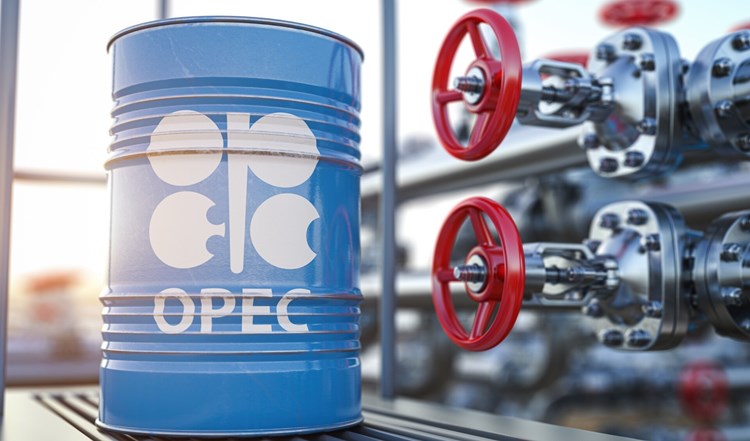
- Commodities
Oil is rising – OPEC+ cuts production
Do you want to know how to make money from this?
Register for free and get expert advice, access to a training course and webinars.
Key points:
- OPEC+ extends production cuts. The reduction will be 2.2 million barrels per day.
- The spread between near and future delivery month futures has widened.
- OPEC+ is expected to regulate oil production to maintain the desired price level.
Following the expected decision by OPEC+ to extend voluntary production cuts, oil prices showed moderate growth on Monday.
Brent crude futures added 14 cents to $83.69 a barrel, extending last week’s 2.4% rise. WTI oil also rose in price, adding 3 cents and settling at $80 per barrel. WTI rose 4.6% last week.
OPEC+ extends oil production cuts
OPEC+ countries have agreed to extend the current restriction on oil production until the second quarter of 2024. The reduction will be 2.2 million barrels per day.
“Signs of tension in the physical market continue to push crude oil higher. Production cuts by the OPEC+ alliance continue to reduce supply as the market worries about renewed tensions in the Middle East,”
– ANZ analysts said on Monday.
Against the background of this decision, the structure of futures curves for Brent oil has changed. The spread between the next and next month of delivery rose 6 cents to 92 cents per barrel. The spread between the sixth and first months widened 9 cents to $4.43.
This market structure, called backwardation, indicates traders’ expectations. They predict a reduction in oil supply in the future, which could lead to higher prices.
What are the expected consequences of the OPEC+ decision?
OPEC+ adjusted oil production forecasts for the second quarter of 2024. Instead of the previously expected increase to 36 million barrels per day, production, on the contrary, will decrease by 34.6 million barrels per day. This decision demonstrates the alliance’s cohesion and its desire to keep oil prices above $80 per barrel.
Geopolitical tensions in the region caused by the conflict between Israel and Hamas, as well as Houthi attacks in the Red Sea, are supporting oil prices. At the same time, fears of slowing economic growth could negatively impact the market.
Overall, OPEC+ demonstrates its determination to regulate oil production to maintain the desired price level. The Group is ready to adjust its plans depending on the geopolitical situation and macroeconomic factors.
Do you want to know
How to make money from the news
Register for free and get:
- Expert consultation;
- Access to the training course;
- Opportunity to participate in webinars

